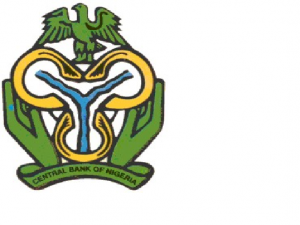• Retains Rates Amidst Domestic Headwinds, Uncertainties
The Monetary Policy Committee (MPC) of the Central Bank of Nigeria (CBN) rose from its two-day meeting on Tuesday with a resolve to retain all rates, including the benchmark Monetary Policy Rate (MPR) at 14%.
In view of the headwinds in the domestic economy and the uncertainties in the global environment, nine of the 10 members also decided to retain Cash Reserve Ratio at 22.5%; Liquidity Ratio at 30%; and the Asymmetric corridor at +200 and -500 basis points around the MPR.
The committee, according to a communiqué at the end of the meeting, signed by Godwin Emefiele, the CBN Governor, lamented that Nigeria’s “banking sector was becoming less resilient as a result of the adverse macroeconomic environment. Nevertheless, the MPC reiterated its resolve to continue to pursue financial system stability.”
The committee called the attention of the CBN’s management to the rising pool of non-performing loans, amidst the declining asset quality in the nation’s banking industry, as well as credit concentration and high exposure to foreign exchange.
Addressing visiting members of the House of Representatives Committee on Insurance and Actuarial Matters on oversight function some weeks ago, Alhaji Umaru Ibrahim, Managing Director/Chief Executive of the Nigeria Deposit Insurance Corporation (NDIC) expressed worry over the resurgence and unhealthy growth in NPL as at December 2016.
Of the industry’s total loan portfolio of N18.53tr recorded during the period, N1.85 trillion or 10% was none performing, double the regulatory threshold, made worse by the alarming N740 billion or 40% of the NPL that was insider or director-related.
The MPC communiqué “also considered the arguments for loosening the stance of monetary policy, noting its desirability in stimulating aggregate demand if credit increased with lower rates of interest. It noted the arguments that loose monetary policy was capable of delivering cheaper credit, making it more attractive for Nigerians to acquire assets, thus increasing wealth and stimulating aggregate spending and confidence by economic agents, which would eventually lead to lower Non-performing loans in the system.
“However, the counterfactual arguments against loosening were anchored on the upward trending month-on-month inflation and its impact on the exchange rate. Loosening would thus worsen the already negative real interest rate, widen the interest rate spread and reverse the positive outlook for the current account position,” the communiqué added.

The members also noted a ray of hope for the economy in the data and forecasts of key economic variables as well as the newly released Federal Government’s Economic Recovery and Growth Plan (ERGP), which indicate prospects of output recovery this year.
“The committee expects that the implementation of this plan, the new foreign exchange policy as well as the current effort by the Federal Government to restore peace in the Niger Delta region would help revive economic growth and stabilize prices,” the communiqué added.
After evaluating other challenges confronting the domestic economy and the opportunities for achieving price stability, conducive to growth in 2017, the committee “noted the persisting inflationary pressures; continuing output contraction; high unemployment rate; elevated demand pressure in the foreign exchange market; low credit to the real sector and weakening financial system indicators, amongst others.
“Nonetheless, members welcomed the improved implementation of the foreign exchange policy that resulted in Naira’s recent appreciation.”
Still on the Federal Government’s recently released ERGP, the committee expressed satisfaction “and urged its speedy implementation with clear timelines and deliverables. On the strength of these developments, the Committee felt inclined to maintain a hold on all policy parameters.”







